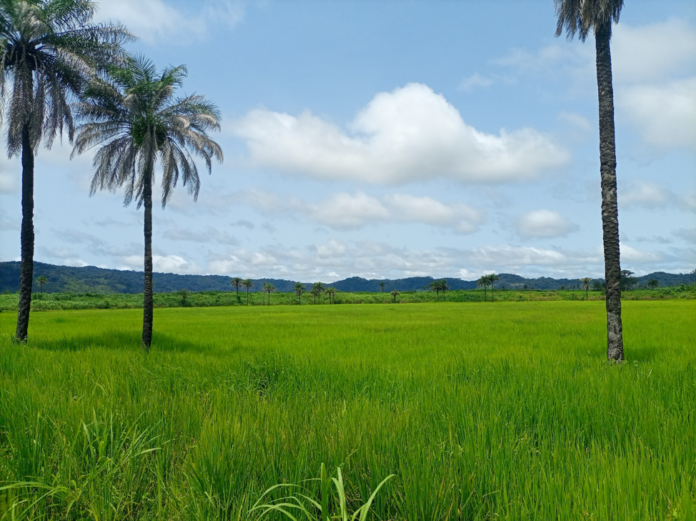By: Christian Alpha Conte
The COVID-19 pandemic has sparked not only a health crisis but also an economic crisis, which together pose a serious threat to food security, particularly in poorer countries.
When the pandemic broke out in 2019 nearly 900 million people worldwide lacked access to sufficient food. Within this population lacking sufficient food, at least 155 million people suffer from severe food deficiencies, and their situation may be critically aggravated by the advance of the pandemic.
The 2020 Global Report on Food Crises (GRFC) provides timely data on acute hunger problems around the world, with details by region and country. It notes that the COVID-19 pandemic may cause a further deterioration in the situation of populations with acute or critical food security. The GRFC points out that due to COVID-19 their number may increase significantly.
António Guterres is the Secretary-General of the United Nations, he said that during this period of immense global challenges ranging from conflicts to climate shocks to economic instability, we must as a people redouble our efforts to defeat hunger and malnutrition. Pointing out that this is crucial to achieving the Sustainable Development Goals and building a more stable and resilient world.
“The number of people battling acute hunger and suffering from malnutrition is on the rise yet again. In many places, we still lack the ability to collect reliable and timely data to truly know the magnitude and severity of food crises gripping vulnerable populations. And the upheaval that has been set in motion by the COVID-19 pandemic may push even more families and communities into deeper distress,” Guterres said.
Here in Sierra Leone according to the 2020 food security and vulnerability analysis conducted eight months after the first COVID-19 case was confirmed in the country the pandemic has had a devastating impact on the global economy and Sierra Leone has not been spared.
“Food insecurity and vulnerability shocks have worsened significantly over years for most Sierra Leoneans, reaching a staggering 57% of the population. The COVID-19 pandemic and its economic fallout have further exacerbated living conditions and access to basic amenities,” the analysis revealed.
However, learning from the experience of the 2014 Ebola outbreak, Sierra Leone’s capital, Freetown has on specific occasions provided its most vulnerable residents with food packages so they can stay safe and healthy during periods like lockdowns and quarantines. Similar programmes have been rolled out in the provinces by other institutions and organisations.
The City Mayor, Yvonne Aki-Sawyerr is however of the view that food insecurity is a risk to COVID-19 containment because people can’t stay home if they have nothing to eat.
“The pandemic has made access to high-quality nutrition even more difficult than usual. That is why the Freetown City Council has been working with partners to bring healthy, nutritious food to its citizens during the period,” Mayor Aki-Sawyerr said.
Around 30% of Freetown’s 1.2 million residents have an available family income of less than 1 USD per day and 47% do not have direct access to running water. In Sierra Leone, the sheer scale of the food insecurity challenge was highlighted in a national survey carried out in April, where only 12% of respondents answered they could gather food for one week or more, while 60% said they could not sustain ‘lockdown’ or movement restrictions for more than three days at a time.
In April during a national three-day order to stay at home, the city government provided emergency food packages to 6000 households in three informal settlements. These donations supplemented national government provisions, whilst also helping and encouraging residents to follow quarantine measures.
Through an urban farming initiative, the city is also supporting sustainable access to nutritious food while building resilience to future crises. During the ongoing pandemic, communities in informal settlements will be supported to grow their own vegetables, beginning with training individuals and youth groups on planting, watering and composting. Work is underway to make water available outside of the rainy season.
Sierra Leone is already one of 25 countries identified as at risk of significant food security deterioration as a result of the COVID-19 pandemic by the Food and Agriculture Organization of the United Nations (FAO) and the World Food Programme (WFP).
The number of people facing acute food insecurity in these countries is predicted to almost double to 270 million before the end of 2020 without an acceleration of protection programmes.
Food security is worsening during COVID-19 as a result of household purchasing power declining from loss of income and remittance, and disruptions to food production and supply chains. There is also concern that overwhelmed governments, increased political instability and aggravated conflict dynamics caused by the pandemic will exacerbate the situation further.
“Cities like Freetown, facing the dual crisis of acute food insecurity and the COVID-19 pandemic, alongside the prospect of further deterioration of food insecurity, must preserve and strengthen existing nutrition programmes,” says Dr Steven Velabo Shongwe, WHO Country Representative in Sierra Leone.
“Freetown is a good example of local government considering new social protection measures to protect vulnerable populations who are at increased risk of economic hardship due to the pandemic, which may negatively impact access to healthy food at a time when it is most needed,” Dr Shongwe said.




